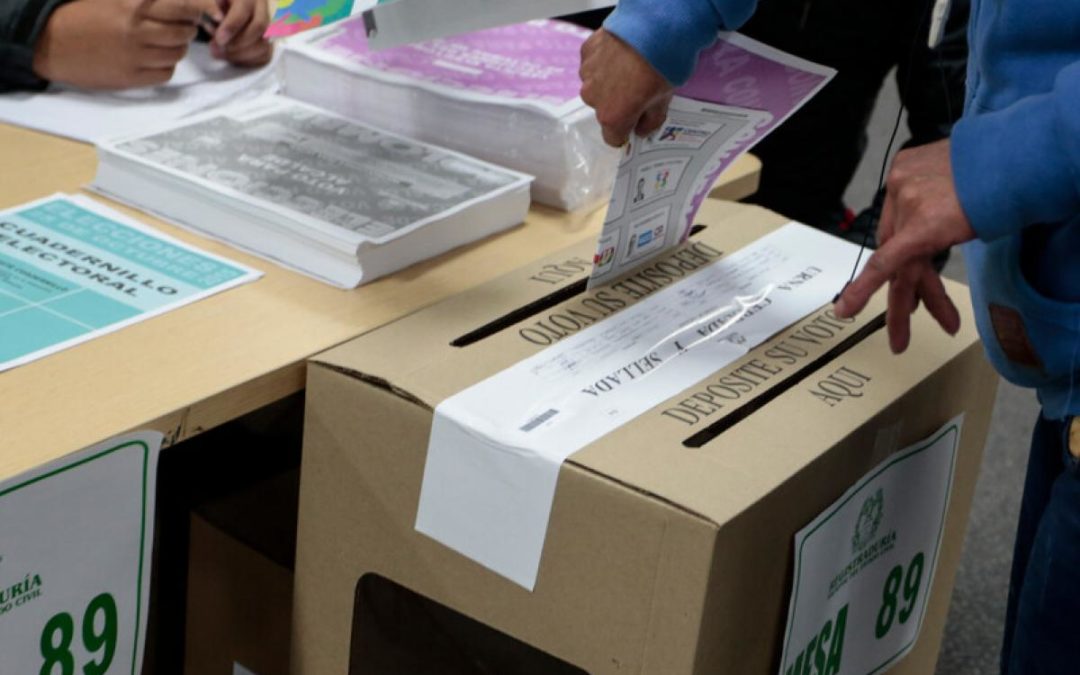The content of this column does not compromise the institutional position of Colectivo de Abogados José Alvear Restrepo.
“As soon as someone understands that obeying unjust laws is contrary to the dignity of being human, no tyranny can dominate him”.
Mahatma Gandhi (1).
Much has been said and will be said about the complications to elect the two highest positions of the Executive in our country, so it is easy to incur in “raining on wet ground”; however, and after the Monday 30 taken off to let data and emotions settle down, several aspects reveal interest. For example, the stubborn insistence on bringing up this or that person’s past, leaving in silence the fact that it has been either purged or denied. Obviously in such silence originates the Coco, atrocious scarecrow that drags a good part of the society, at the point of fear, towards distorted realities that, taken for certain, have Colombia in a sick state of injustice and violence.
The practice of Catholicism and Christianity are common in Colombian society, therefore it is pertinent to bring to the story the episode of the gospel that narrates the presentation before Jesus of an adulterous woman caught in fault, which according to the law should be stoned, he asked whoever was free of guilt to throw the first stone… but there were no stones crossing the air.
At this point it is necessary to make a deep analysis of the forms of struggle developed by individuals or groups so that the Colombian community could have access to justice. Looking at history, there have been those like Doctor José Alvear Restrepo, Father Camilo Torres among others who, tired of struggling to build such elusive value from within the establishment, thought that it had to be done from outside and, if there were weapons on one side to defend privileges, there would be weapons on the other to take them away… valid?… it is a choice and in it they left their lives. What has been described is of long standing in Colombia, hence the rejoicing with the Peace Agreement in 2016.
There have also been those who from the establishment itself raise their voices and use the instruments that the establishment has structured, to destabilize the parapets that in parallel sustain the privileges from which injustice arises. A sample of such behavior can be seen by observing a debate of the alternative sector in the Senate of the Republic.
The presidential candidate Gustavo Petro has traveled both roads; he came out of the first one tortured but alive; through the second one he is making his arguments more and more heard, which added to the growing awareness of different sectors of the population, put Colombia in an optimal correlation of forces to open the door to justice and obviously close it to violence, to open the door to tasty living and close it to indolence.
Without incurring in praises that overflow egos, this does not seem to be the right moment to criticize him for a path chosen in the past, in order to distort his subsequent actions; who has been right in all the paths he has chosen… No doubt, nobody would have been able to say: me. Now, history whispers to us the life-words of Desmon Tutu [2]: “If you are neutral in situations of injustice, you have chosen the side of the oppressor”; in his walk through politics Gustavo Petro has not been neutral.
What has been said so far deserves an explanatory note under penalty of incurring in a similar monstrosity that apparently Colombian democracy would have to swallow: a son of a victimizer representing the victims. As our country gave birth to Macondo, we have our own little credible matters, for example that of the para-armies displacing peasants to buy cheap land, sow them with steers and fatten latifundia, that is to say, the Common Good carried like a lapdog for the individual good or for the good of small groups, crushing ethics and human dignity. That past, given that it was the past, can neither be forgiven nor forgotten; nothing that gives rise to injustice and violence can be tolerated by humanity.
Finally, and in the event that Gustavo Petro makes a mistake along the way, let him not forget the choice of the electorate, Francia Marquez, his partner in the construction of dignity as a custom. Besides, and this is usually forgotten: those of us who vote choose a government program and we are a gigantic swarm of overseers.
“In my country, first you go to prison and then you are president.”
Nelson Mandela (3)
Lía Isabel
[1] Pacifist, leader of the non-violent civil disobedience that liberated India from the colonization of the United Kingdom.
[2] South African pacifist clergyman, fighter against discrimination based on skin color.
[3] South African politician and activist, fighter against discrimination based on skin color. His struggle led him to prison for twenty-seven years; he later became President of his country.
The content of this column does not compromise the institutional position of Colectivo de Abogados José Alvear Restrepo.

